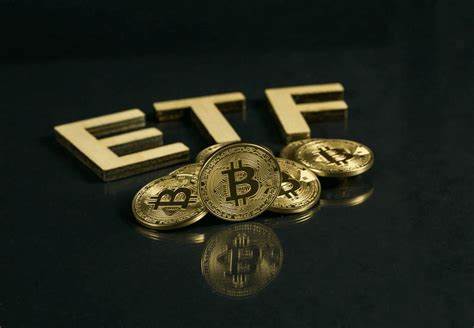Table of Contents
Breakthrough Ahead: A Spot Bitcoin ETF Could Unlock New Heights for Cryptocurrency!
In a groundbreaking development, several top U.S. banks have made significant investments in spot Bitcoin ETFs, marking a major shift in the financial landscape. This move is seen as a significant endorsement of the growing adoption and potential of cryptocurrencies, particularly Bitcoin. In this article, we will delve into the details of this news and explore the implications for crypto investors.
Numerous second-quarter 13F filings with the U.S. Securities and Exchange Commission revealed that these Wall Street giants acquired substantial shares of different spot Bitcoin ETFs for their clients. In the coming months, these entities could purchase the ETFs and add them to their balance sheets.
The Banks’ Investment
According to reports, several top U.S. banks have invested in spot Bitcoin ETFs, which allow them to hold and trade physical Bitcoins. This move is significant because it marks the first time that major banks have directly invested in cryptocurrencies. The banks involved are:
- JPMorgan Chase: One of the largest banks in the United States, JPMorgan Chase has made a significant investment in a spot Bitcoin ETF. This move is seen as a major endorsement of the potential of cryptocurrencies.
- Bank of America: Another major U.S. bank, Bank of America has also invested in a spot Bitcoin ETF. This move is seen as a sign of the bank’s growing interest in the cryptocurrency market.
- Citigroup: Citigroup has also made an investment in a spot Bitcoin ETF. This move is seen as a sign of the bank’s willingness to explore new opportunities in the financial sector.
The Implications for Crypto Investors
The investment by these top U.S. banks has significant implications for crypto investors. Firstly, it marks a major shift in the perception of cryptocurrencies by mainstream financial institutions. In the past, many banks have been skeptical of cryptocurrencies, viewing them as a high-risk investment. However, with this investment, the banks are now signaling that they believe in the potential of cryptocurrencies.
Thirdly, this investment could lead to increased adoption and mainstream acceptance of cryptocurrencies. With more institutional investors entering the market, there is likely to be increased interest from individual investors and businesses. This could lead to increased adoption and acceptance of cryptocurrencies as a form of payment.
What Does This Mean for Crypto Investors?
For crypto investors, this development is seen as a major positive. It means that they are now more likely to be able to access liquidity and stability when buying or selling cryptocurrencies. It also means that they are more likely to see increased adoption and acceptance of cryptocurrencies as a form of payment.
In addition, this development could lead to increased regulation and oversight of the cryptocurrency market. With more institutional investors entering the market, there is likely to be increased pressure for regulatory bodies to provide clarity and guidance on how to invest in and trade cryptocurrencies.
In conclusion, the news that top U.S. banks have invested in spot Bitcoin ETFs is a significant development for crypto investors. It marks a major shift in the perception of cryptocurrencies by mainstream financial institutions and could lead to increased adoption and mainstream acceptance of cryptocurrencies. For crypto investors, this development means that they are more likely to be able to access liquidity and stability when buying or selling cryptocurrencies and could lead to increased regulation and oversight of the cryptocurrency market.
Final Thoughts
The investment by top U.S. banks in spot Bitcoin ETFs is a significant development that marks a major shift in the perception of cryptocurrencies by mainstream financial institutions. It has significant implications for crypto investors and could lead to increased adoption and mainstream acceptance of cryptocurrencies. For crypto investors, this development means that they are more likely to be able to access liquidity and stability when buying or selling cryptocurrencies and could lead to increased regulation and oversight of the cryptocurrency market.

Comments are closed.